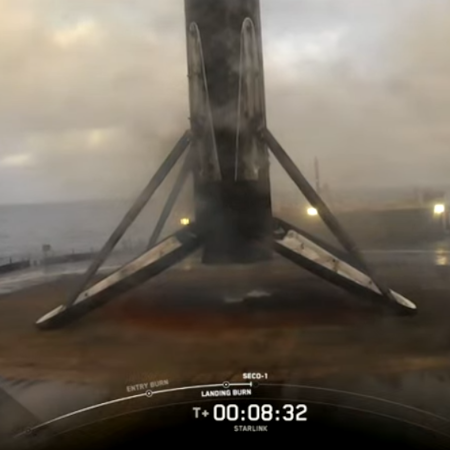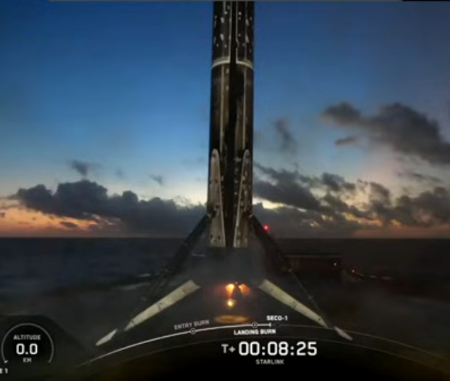SpaceX launches 29 Starlink satellites
SpaceX in the early morning hours today successfully launched another 29 Starlink satellites, its Falcon 9 rocket lifting off from Cape Canaveral.
The first stage completed its 10th flight, landing on a drone ship in the Atlantic.
The 2026 launch race:
19 SpaceX
8 China
2 Rocket Lab
2 Russia
1 ULA
1 Europe (Arianespace)
As it did in both ’24 and ’25, SpaceX in ’26 so far has more launches than the entire rest of the world combined.
SpaceX in the early morning hours today successfully launched another 29 Starlink satellites, its Falcon 9 rocket lifting off from Cape Canaveral.
The first stage completed its 10th flight, landing on a drone ship in the Atlantic.
The 2026 launch race:
19 SpaceX
8 China
2 Rocket Lab
2 Russia
1 ULA
1 Europe (Arianespace)
As it did in both ’24 and ’25, SpaceX in ’26 so far has more launches than the entire rest of the world combined.



